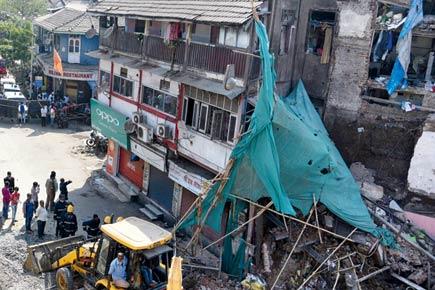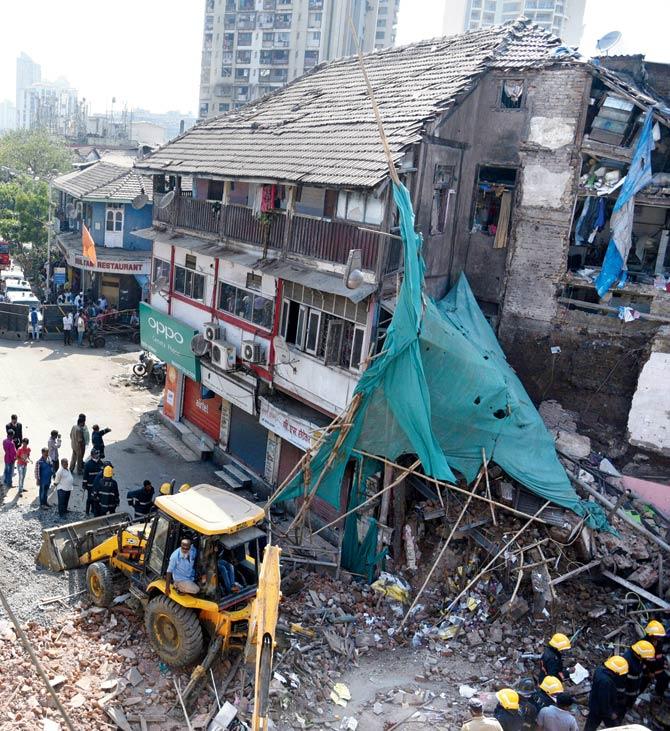The civic body had sent a list of around 100 dilapidated buildings in May 2015; the fateful structure that caved in last week was on it, too

The Maharashtra Housing and Development Authority (MHADA) should have seen the disaster at Kamathipura coming. The Brihanmumbai Municipal Corporation (BMC) had in May last year sounded the alarm on the condition of the building in the area that collapsed last Saturday, killing six persons.
ADVERTISEMENT

The Gulmohur Building, which collapsed last Saturday, had been found dilapidated by the BMC last year. File pic
In a letter, dated May 13, 2015, the BMC had cautioned the housing authority that the fateful building, among others, was dilapidated. It had also asked it to carry out an inspection and take necessary measures before the monsoon.
The 90-year-old Gulmohur Building (no. 12A) in Kamathipura’s lane number 14 was a cessed building and was being repaired by MHADA when it collapsed.
Nailing the lie
The letter punches holes in MHADA’s claim to mid-day soon after the cave-in that the building had not been declared dilapidated during their survey last year.
MHADA conducts an annual survey of buildings every summer and those termed dilapidated are repaired or redeveloped. The housing authority’s survey last year had declared only 14 buildings as dilapidated, while around 1,000 others were repaired. The objective is to identify dilapidated buildings in every area and then send them notices accordingly.
According to the BMC letter, sent by the assistant engineer (building and factory) of E ward to the executive engineers of MHADA’s repair board, the civic staff had found a number of dilapidated buildings during their routine inspections. “...As such you are requested to inspect the said buildings and take necessary precautionary measures,” the letter asked MHADA. “Please treat these as most urgent as the monsoon is approaching fast and as these properties are cessed properties in your jurisdiction, this office will not be held responsible for a mishap,” it cautioned.
Attached with the letter was a list of around 100 buildings, including building number 12A, inspected by the ward staff.
“We had informed MHADA authorities of the condition of the building after our staff inspected it, but I don’t remember getting any reply from them. Had they taken our letter seriously, lives could have been saved,” said an officer from E ward.
Although the building was unoccupied, workers tasked with repair works were inside when tragedy struck. There were also shops on the ground floor and erstwhile tenants ran some manufacturing units there.
The other side
Asked why the MHADA failed to take action despite a clear warning, chairman of the repair board Sumant Bhange said, “Yes, a survey was undertaken last year and 14 buildings were declared dilapidated. But, we repaired many others. I have now constituted an inquiry under the deputy chief engineer into this matter and a report is awaited soon. The inquiry will point out what went wrong.”
According to Bhange, when a building is declared dilapidated, they have to send a notice to the occupants to vacate it. However, they need the consent of 70% of the occupants for redevelopment or they have to acquire the building for this purpose. Similarly, for repairs, tenants have to be sent a notice and repairs are undertaken through tenders.
“But conducting a structural audit is the owner’s responsibility. MHADA was not the owner of Gulmohur,” said Bhange.
 Subscribe today by clicking the link and stay updated with the latest news!" Click here!
Subscribe today by clicking the link and stay updated with the latest news!" Click here!






